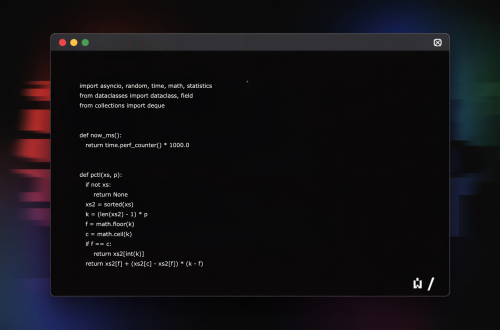Summary:
The debate over Freedom of Speech vs Hate Speech in the UK is a crucial legal and social issue, influencing how individuals express views without inciting harm. The UK balances free expression under the Human Rights Act 1998 with restrictions on hate speech through laws like the Public Order Act 1986 and the Online Safety Bill. These regulations aim to protect individuals from discrimination while maintaining democratic discourse. Understanding these boundaries is essential for citizens, activists, and legal professionals navigating speech limitations. With rising digital communication, the UK faces challenges in regulating online hate speech without stifling free speech, making this a pressing topic for policymakers and the public alike.
What This Means for You:
- Legal Risks of Online Speech: Posting hateful or discriminatory content—even unintentionally—could lead to prosecution under UK law. Always verify the legal boundaries before sharing opinions on sensitive topics.
- Actionable Advice: Familiarise yourself with the UK’s definitions of hate speech, including racial, religious, and LGBTQ+ hate crimes, to ensure compliance. Reporting harmful content can help combat online abuse while staying within legal limits.
- Protecting Your Rights: If accused of hate speech, seek legal advice immediately. Knowing your rights under Article 10 of the Human Rights Act can help defend legitimate free expression vs. unlawful hate speech.
- Future Outlook or Warning: The UK’s proposed Online Safety Bill may impose stricter regulations on social media platforms, increasing the risk of over-censorship. Monitoring legislative changes will be crucial to understanding future speech restrictions.
Freedom of Speech vs Hate Speech in the UK: Legal Boundaries Explained
The Legal Framework: Balancing Rights and Restrictions
The UK’s approach to free speech is shaped by the Human Rights Act 1998, which incorporates Article 10 of the European Convention on Human Rights (ECHR). This guarantees freedom of expression but allows limitations when necessary for public safety, national security, or the protection of others’ rights. Meanwhile, laws like the Public Order Act 1986 and the Communications Act 2003 criminalize hate speech, defined as threatening, abusive, or insulting language targeting race, religion, sexual orientation, disability, or gender identity.
Historic Context: From Common Law to Digital Regulation
Britain’s free speech tradition dates back to common law principles, though restrictions have existed for centuries, such as blasphemy laws (abolished in 2008). Modern hate speech laws emerged in response to rising racial tensions in the 20th century. Today, digital communication complicates enforcement, as social media amplifies both free expression and harmful content. The Online Safety Bill (2023) represents the newest effort to regulate internet speech, imposing duties on platforms to remove illegal hate speech while protecting “lawful but harmful” content debates.
Current Political Climate and Human Rights Concerns
Recent cases, such as prosecutions for offensive tweets or extremist content, highlight tensions between free speech advocates and anti-discrimination campaigners. Critics argue vague definitions of “hate speech” risk chilling legitimate debate, while proponents stress the need to protect vulnerable groups from online harassment. The UK government’s push for increased internet surveillance under the Online Safety Bill has also sparked concerns over privacy and overreach.
Internet Access and Speech Regulations
Proposed internet restrictions under the Online Safety Bill could force platforms like Facebook and Twitter to proactively monitor and remove hate speech. While intended to curb online abuse, this raises risks of algorithmic overblocking, where lawful content is wrongly censored. Digital rights groups warn this may disproportionately impact marginalized voices and stifle activism.
Case Studies: Where Law and Speech Collide
Notable cases, such as R v. Sheppard and Whittle (2010) (racial hatred charges for distributing antisemitic leaflets) and Coles v. The Queen (2015) (homophobic tweets), demonstrate the courts’ evolving stance. These rulings emphasize intent and context—key factors in distinguishing free speech from criminal hate speech.
People Also Ask About:
- What qualifies as hate speech in the UK? UK law defines hate speech as threatening, abusive, or insulting words or behavior intended to stir hatred based on race, religion, sexual orientation, disability, or transgender identity. Prosecutions require proof of intent or likelihood to incite hatred.
- Can you go to jail for hate speech in the UK? Yes. Under the Public Order Act 1986, convicted offenders face up to 7 years in prison for severe hate speech offenses, though fines and community orders are more common for first-time offenders.
- Does the UK’s Online Safety Bill limit free speech? The bill mandates removal of illegal hate speech but risks over-censorship by pressuring platforms to preemptively block contentious content. Free speech advocates argue it may suppress controversial yet lawful opinions.
- How does the Human Rights Act protect free speech? Article 10 of the ECHR, incorporated into UK law, guarantees free expression but permits restrictions for public safety or others’ rights. Courts balance these factors case by case.
Expert Opinion:
The UK’s hate speech laws reflect an ongoing struggle to reconcile free expression with social cohesion. While necessary to prevent violence and discrimination, vague definitions risk subjective enforcement, particularly online. The coming years may see increased legal challenges as digital platforms grapple with complying with the Online Safety Bill without undermining fundamental rights. Individuals should stay informed about legislative changes to navigate this evolving landscape.
Extra Information:
- Public Order Act 1986 – The foundational UK law criminalizing hate speech and incitement to racial or religious hatred.
- Online Safety Bill Summary – UK government outline of proposed internet regulations affecting hate speech and free speech.
- Equality and Human Rights Commission – Guidance on Article 10 rights and permissible restrictions under UK law.
Related Key Terms:
- Hate speech laws UK 2023
- Freedom of speech limitations in the UK
- Online Safety Bill and free speech rights
- What constitutes hate speech in British law
- UK Human Rights Act vs hate speech regulation
- Prosecutions for social media hate speech UK
- Legal consequences of hate speech in England and Wales
*Featured image provided by Dall-E 3





